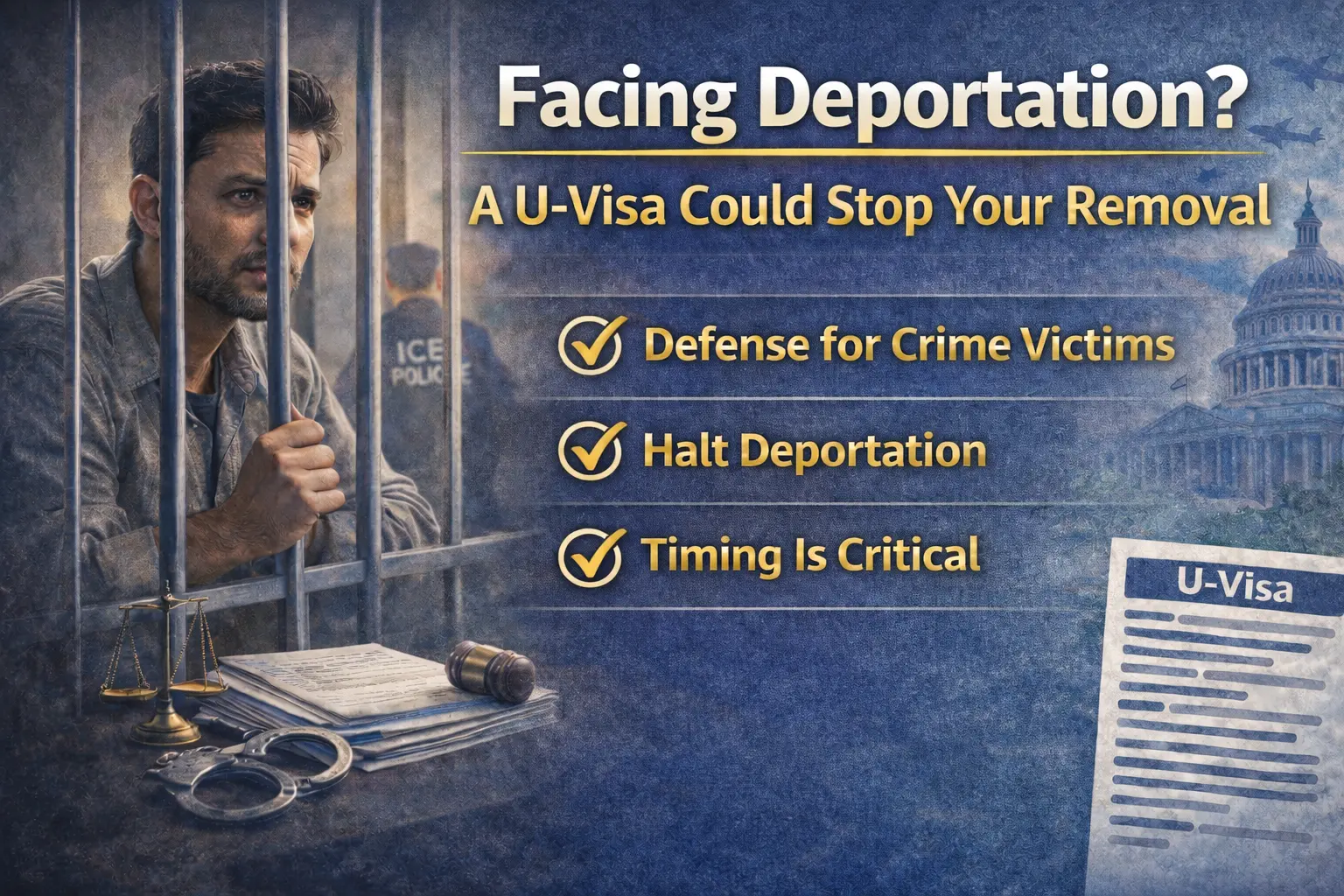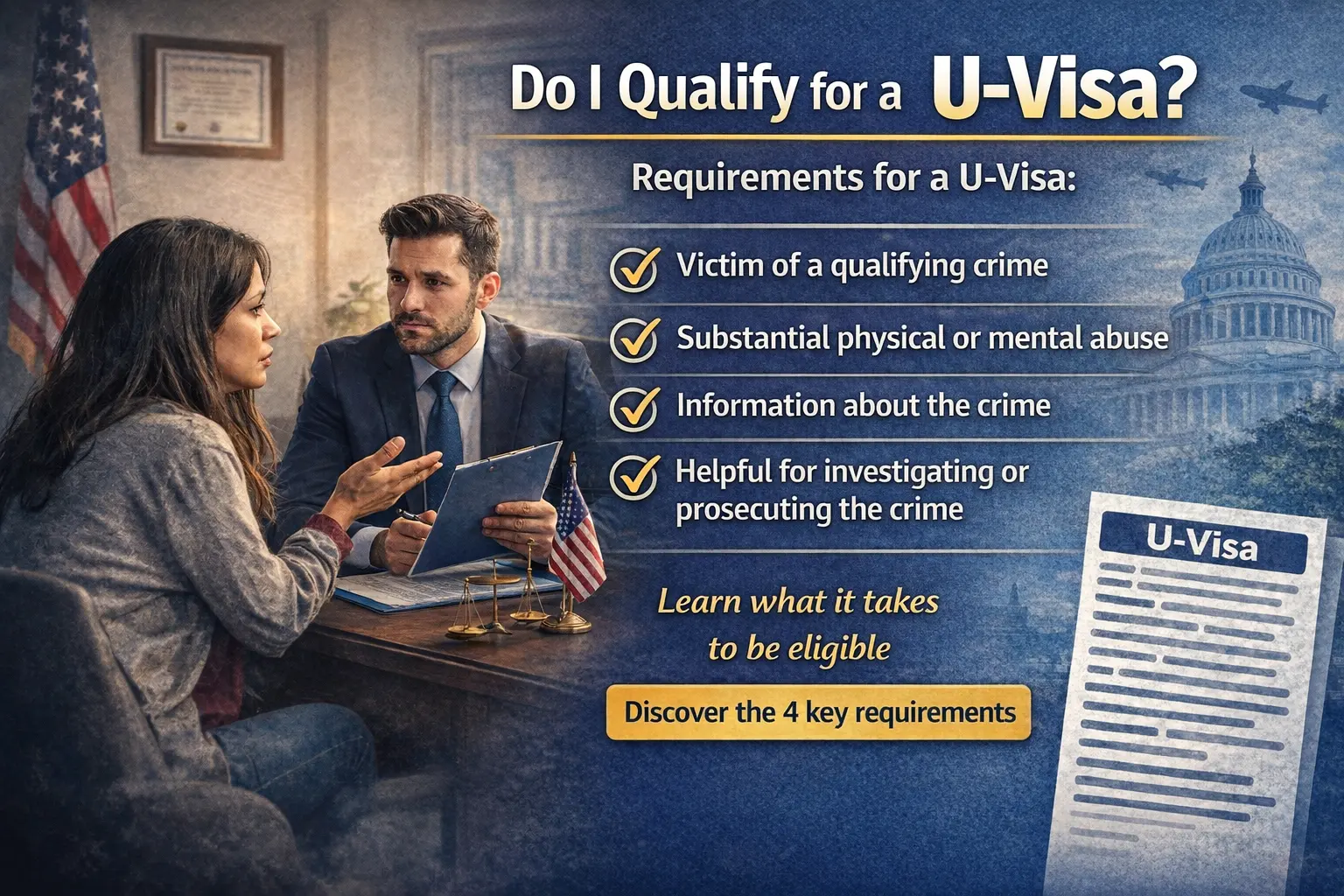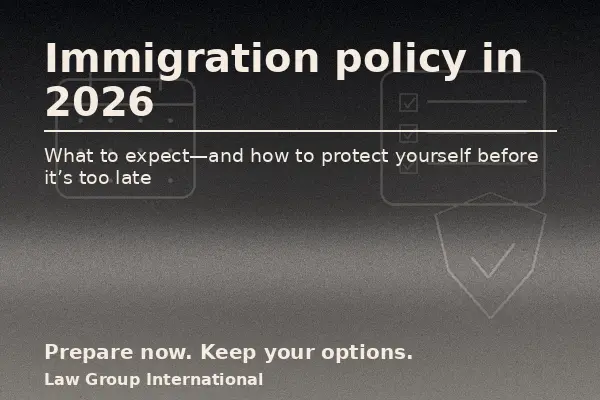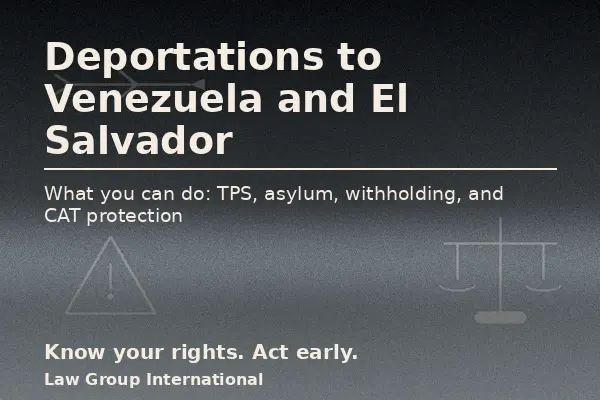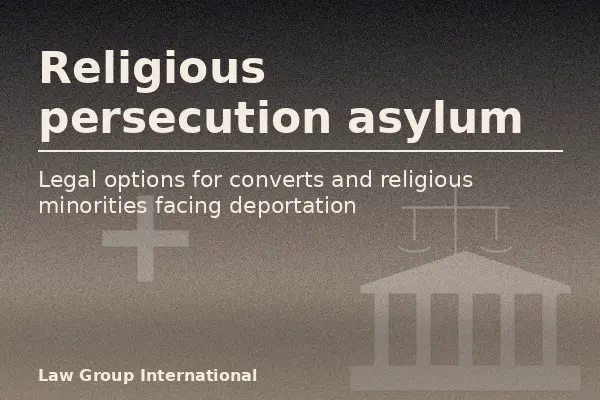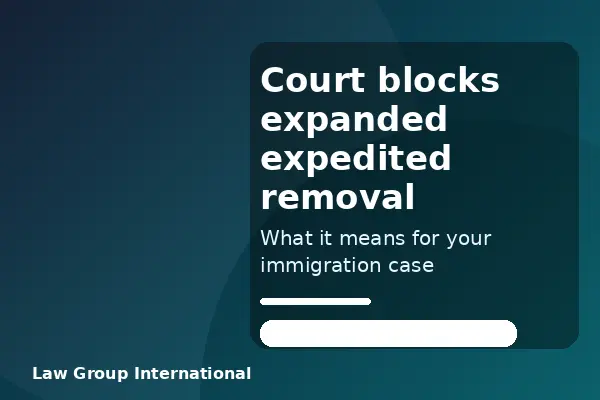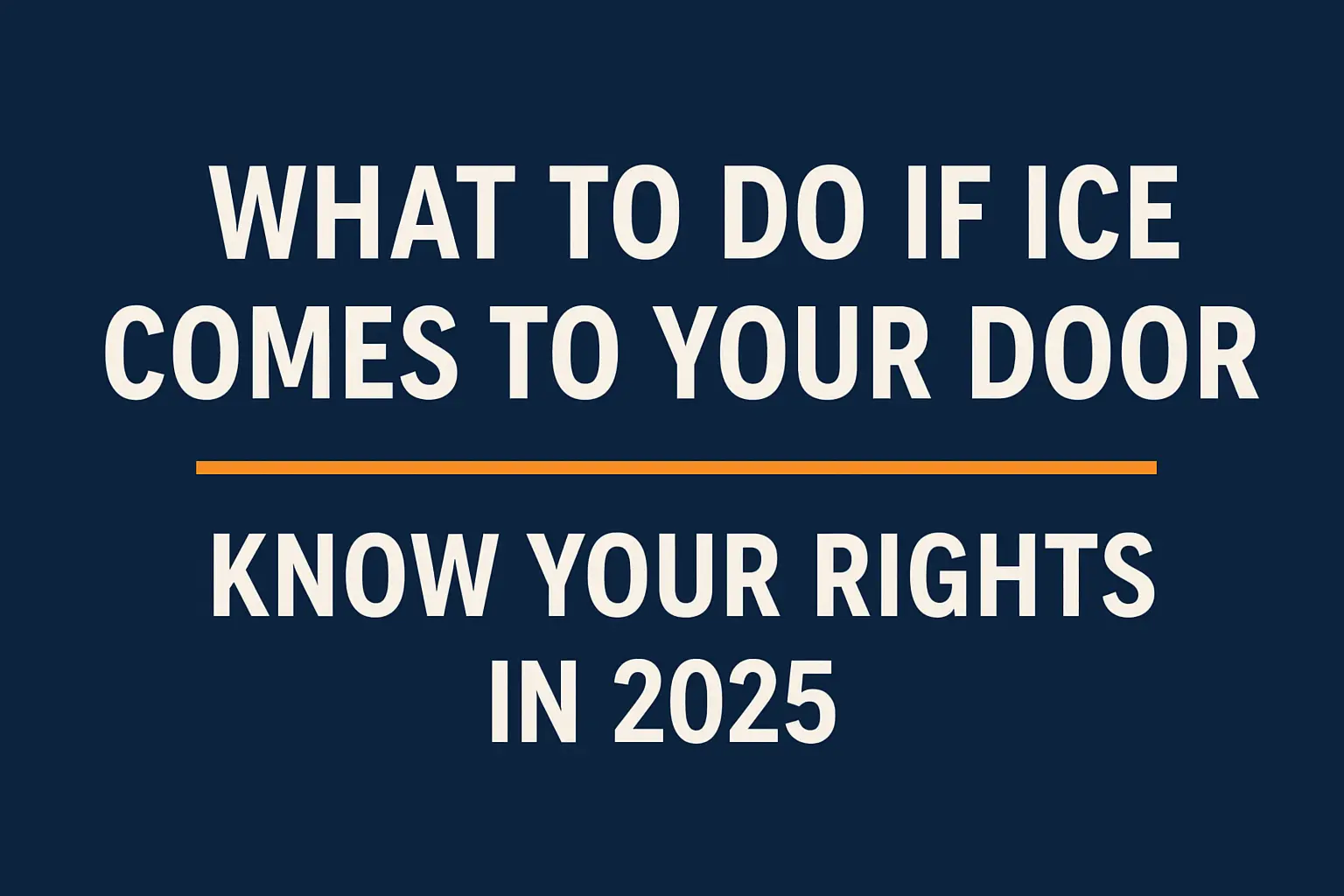Bond Hearings for Immigrants: Eligibility, amounts, and how to request one
A bond hearing gives detained immigrants the chance to ask an Immigration Judge (IJ) for release while their case is still pending. At this hearing, the judge decides whether you can be released and sets the immigration bond amount based on risk and safety considerations.
In 2025, bond eligibility rules shifted, and policies continue to change. That’s why it’s critical to review your options with an experienced attorney. At Law Group Internationalhttps://lgilawyers.com/, we help detained immigrants and their families understand the process and prepare strong bond requests.
What Is a Bond Hearing?
A bond hearing is separate from your deportation (removal) proceedings. First, the Department of Homeland Security (DHS) makes a custody decision under INA §236(a) or §236(c). If you disagree with DHS’s decision, you can request a bond redetermination before an immigration judge, at no filing cost.
Source: EOIR Practice Manual; 8 C.F.R. §1003.19
Who Is Eligible Right Now?
An immigration judge usually has jurisdiction to hear a bond request if you are detained under INA §236(a). However, there are important exceptions:
- Arriving immigrants under INA §235(b): Not eligible for IJ bond hearings.
- Mandatory detention under INA §236(c): Certain crimes or security cases are excluded.
- Final orders / reinstatement / expedited removal: No IJ bond authority.
- Mootness: If you’ve already been released or removed, there’s no hearing.
Sources: EOIR Policy Manual, INA §§235, 236
Policy Watch (2025)
Recent BIA rulings suggest possible restrictions on bond eligibility for immigrants who entered without inspection (EWI). Litigation and appeals are ongoing, and outcomes may vary case by case.
Don’t assume you’re ineligible. Ask us for a tailored legal review.
How to Request a Bond Hearing (Step-by-Step)
You can request a bond hearing in one of three ways:
- In writing: Send a letter to the court with your name, A-number, detention location, DHS bond decision, and attorney details.
- Orally: Ask for a bond hearing during your Master Calendar Hearing.
- By phone: Follow IJ procedures in detained dockets.
Once requested, courts generally set bond hearings as soon as possible, often within weeks.
You usually only get one main chance. A second bond request requires “materially changed circumstances,” such as new relief eligibility, dropped charges, stronger sponsor support, or new medical documentation.
Source: 8 C.F.R. §1003.19(e)
What Judges Consider (and How to Prepare Your Packet)
Immigration judges weigh several key factors:
- Danger to persons or property
- Risk of flight (likelihood you’ll attend hearings)
- National security concerns
- Whether you merit discretionary release
The burden of proof is on you. A strong bond packet should include:
- Sponsor letter from a U.S. citizen or permanent resident
- Proof of stable residence and long-term U.S. presence
- Family ties (marriage/birth certificates, school or work records)
- Community letters from religious leaders, employers, or mentors
- Clear roadmap for relief (asylum, U/T visa, family-based petition)
- Certified translations of any documents in another language
- Criminal updates/dispositions with rehabilitation proof
- Evidence of prior court compliance
Source: Matter of Guerra, 24 I&N Dec. 37; Federal Bar Association
How Much Is an Immigration Bond?
- Statutory minimum: $1,500
- No maximum: The amount depends on your risk profile
- Typical bonds: Often set much higher in practice
Source: 8 U.S.C. §1226(a)(2)(A)
Paying the Bond (CeBONDS, Who Can Pay, and Refunds)
- Who can pay (obligor): A U.S. citizen or LPR, 18+, with valid ID.
- How to pay: Use ICE CeBONDS. The obligor creates an account, uploads ID, and posts the bond in full.
- Refunds: After the case ends or custody changes, ICE issues Form I-391 (cancellation for refund) or Form I-323 (breach if conditions violated).
Source: ICE/ERO CeBONDS
If the Judge Denies Bond (or Sets It Too High)
If your bond request is denied or the amount is unaffordable, you still have options:
- Appeal to the BIA: File Form EOIR-26A by the deadline.
- Request a new hearing: Only if circumstances have materially changed.
- Ask ICE for parole: Especially in medical or humanitarian cases.
Source: EOIR; 8 C.F.R. §1003.19
Common questions about Bond Hearings for Immigrants (FAQ)
- Can I get a bond if I entered without inspection?
Possibly restricted under new 2025 rulings. Get case-specific legal advice. - Is a bond hearing recorded?
No. Custody proceedings are separate from your deportation case. - What evidence helps the most?
Strong sponsor, stable housing, family ties, clean record, and eligibility for immigration relief. - What’s the minimum bond?
$1,500 by statute. - Can DHS appeal my bond grant?
Yes. DHS can appeal, and in some cases stays apply.
Why Work With Law Group International (Alexandria/NOVA)?
At Law Group International, we know how urgent bond hearings are. Our team helps:
- Build persuasive bond packets
- File requests quickly on the Alexandria/Annandale detained dockets
- Coordinate with DHS/OPLA in DC and Virginia
- Guide families through ICE’s CeBONDS system
Ask an Attorney About Bond Eligibility
- Same-day bond review
- Bilingual support (English, Spanish, Farsi, Dari)
- Detained docket experience
Schedule your confidential bond consultation today.
Explore More Immigration Topics
VAWA Immigration: Protection for Victims of Domestic Violence
January 28, 2026
U-Visa and Deportation: How This Visa Can Save Your Case
January 19, 2026
U-Visa requirements 2026: Complete eligibility guide
January 13, 2026
Immigration Policy in 2026
January 1, 2026
Deportations to Venezuela and El Salvador
December 31, 2025
Religious Persecution Asylum
December 30, 2025
Northern Virginia Immigration Court
December 20, 2025
Federal Court Blocks Expanded Rapid Deportations
December 16, 2025
What to Do If ICE Comes to Your Door
December 14, 2025


